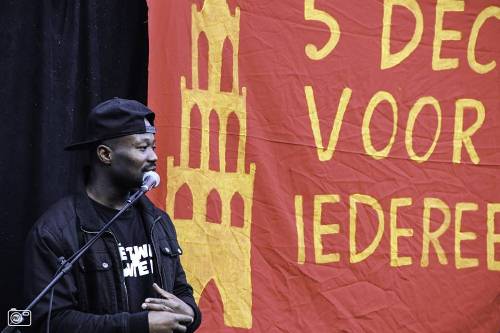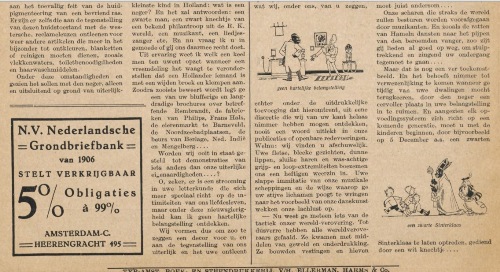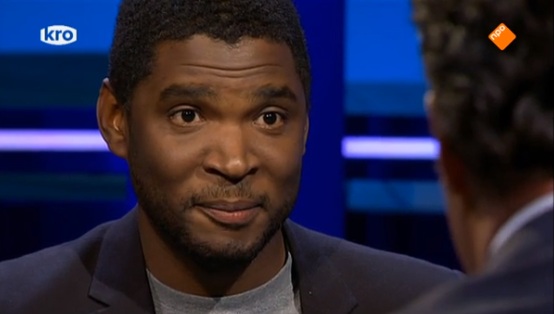Open letter to the Dutch government: Government's approach to Zwarte Piet
Is the government right to refrain from stating an opinion about Zwarte Piet? Having no opinion is no option anymore. The government owes the Netherlands an official statement.
Dear Mr. Schoenmaker (Mayor of Gouda), Prime Minister Rutte, Ms. Van Stegeren (of the Dutch Embassy in Sweden), Mr. Van der Laan (Mayor of Amsterdam), and other members of government,
Having written a blog about Zwarte Piet last year, I did not feel like writing about the same subject again. So many good and sensible things have been said by now, that I was convinced that Zwarte Piet would soon disappear from the Dutch stage. And I remain convinced of this, since the arguments are clear enough.
Yet, I do feel a response is demanded for the way in which you - representatives of the Dutch government - have responded to this discussion. Let me remind you: the PM pointed out that ‘Zwarte Piet is black, I can’t do anything to change that.’ The Mayor of Amsterdam feels no need to intervene in the discussion. The Mayor of Gouda thought it fit to dress up policemen as Zwarte Piet and to remove Jerry Afriyie from the public with brute violence. Ms van Stegeren, the Dutch diplomat in charge of political affairs in Sweden merely said: ‘Our government does not have an opinion about this issue; neither do we’. And that is the issue about which I, as a Dutch civilian, wish to give you my unsolicited opinion.

Jerry Afriyie (alias Kno’ledge Cesare) speaking in Utrecht, November 2014. Photo Jerry Afriyie.
Is it indeed true that, as government representatives, you can escape completely from having an opinion on an issue that concerns so many people? I do not think so. I think instead that you owe it to yourself and to your country to speak up. This is not about your personal opinion, but about how the government handles this issue. Whoever keeps his or her mouth is complicit; whoever dresses policemen in Zwarte Piet attire and violently removes a peaceful demonstrator from the crowd has made his or her choice. The same applies to the Dutch Lower House, which early in November gave the floor to members of parliament who had dressed up as Zwarte Piet: whoever lets them speak in public in parliament provides a platform for racism.
Since I discovered in 2011 that the Zwarte Piet is quite a weird figure of Dutch cultural heritage I learned a great deal. As I was born and raised as a white Dutch, I was, like you, not aware of the weirdness of Zwarte Piet. But in the meantime we have had the time to get used to the idea, and it becomes urgent that we finally listen. All the more since the protests appear not to be new: what about the below newspaper article in De Groene Amsterdammer of 1930?

Page from the Dutch newspaper De Groene Amsterdammer, April 19, 1930.
Currently the debate is being condemned as mudslinging between two equal parties. I think this is an unjustified labeling of the anti-Zwarte Piet voices. The difference between both parties is that the one protests against racism, and the other does not want to listen. If you think that the sentence ‘Zwarte Piet is racism’ is mudslinging, then I wonder how the protest should have been framed otherwise. The sentence distinguishes clearly between the figure of Zwarte Piet and the people who celebrate this tradition. This distinction has also consequently been made by the pioneers of the movement. And obviously this sentence was needed to finally reach me and many other white Dutch who had never realized its racist character.
Let’s suppose you believe that the figure of Zwarte Piet has another origin than this country’s connection with slavery in the past. Let’s look only at the annual festival itself, and the rituals performed. Doesn’t it strike you that, for anyone who has not seen this ritual performed every year since childhood, the arrival of a boat with a white Santa Claus and an army of Zwarte Pieten would remind anyone of slavery? We can understand this even better if we know that the figure of blackface has a racist origin worldwide. And if this is the case, would you not agree that such a direct reference to slavery, even if it happens unconsciously, should immediately make us feel ashamed, given that it happens in a country that has had such an involvement in the history of slavery? As soon as we become aware of this, wouldn’t we immediately want to distance ourselves from such an association?

Shot from ‘Our colonial hangover’ youtube clip made by filmmaker Sunny Bergman.
It seems unlikely that you, as representatives of the Dutch government, can possibly be indifferent to these arguments. Especially now we keep hearing how people abroad immediately make the link between the figure of Zwarte Piet and slavery. And even more so now we hear from our colored compatriots that it reminds them of the history of slavery, that their children are ashamed of their skin color, and that there are many people who avoid going out on the street around December 5th because they are afraid of being harassed. Would we not want to avoid at all costs for the history of such suffering, caused by Dutch people, to be remembered because of a Dutch national celebration? If we look at it this way it seems to me that we should be embarrassed, and should want to make it clear in every possible way that we want to leave behind this black page in our country’s history.

Quinsy Gario in Dutch television program 'Oog in oog’, November 27, 2014.
Moreover, I find it incomprehensible and outrageous that people who protest peacefully against this tradition have been arrested with the use of brute violence. As a Dutch citizen, I feel deeply ashamed of the very violent arrest of the Dutch celebrity Jerry Afriyie as he protested against Zwarte Piet. Anyone who has seen his public appearances in recent years will know that he expresses his protest in a very moderate and gentle tone. The video clips of his arrest show clearly that he was an explicit target of police action. I strongly condemn the violence that was used against him, which I deem absolutely unworthy of this country. This is especially true since a similar arrest already occurred before, when Quinsy Gario was violently arrested by police in 2011. You were prepared and could have prevented this, but you have deliberately chosen this approach.
Having no opinion in this case does not seem in any way defensible to me. This is not a private matter but an institutionalized celebration backed up and facilitated by the government. A celebration of which the Zwarte Piet has been labeled as a racist component by the UN Office of the High Commissioner for Human Rights. Racism is no light issue, and it requires a response from government. Dodging this discussion by labeling it as mudslinging, and as no government issue, is impossible. It is impossible because a democracy guarantees the protection of her minorities.
No opinion? You represent a country that prides itself of being democratic and free. Your voice has national reach and meaning. If after this much of clear language from inside the country and from abroad you still keep silent, and in fact support the pro-zwarte piet majority, you refrain from your task. You miss a great chance to push this country in the direction it needs urgently: towards being an inclusive country to which all its citizens belong, and that has a national celebration that everyone can enjoy. As government representatives you do not have the right to keep silent.
This blog appears in Dutch on Wanderings of an Anthropologist.



1 Comment
Read the very good and well summarazing scholarly article on Black Piet online for free: http://booksandjournals.brillonline.com/content/journals/10.1163/22134360-08803062
Add a comment